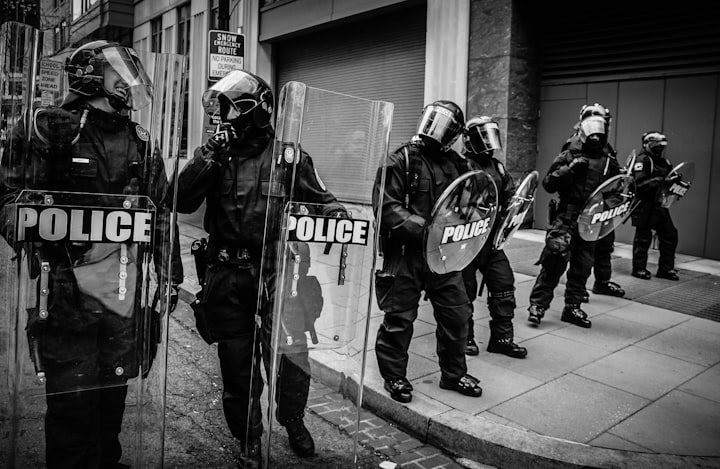The push for police reform and calls to defund the police have gained significant momentum in recent years, fueled by concerns over police violence, racial profiling, and systemic biases within law enforcement institutions. These movements seek to address issues of accountability, transparency, and the allocation of resources in policing, with the ultimate goal of creating safer and more equitable communities.
Calls for police reform encompass a range of proposed changes, including increased police oversight, mandatory body cameras, improved training on de-escalation tactics and implicit bias, and the implementation of community policing strategies. The focus is on transforming law enforcement practices to prioritize community safety, trust-building, and the protection of individual rights. Advocates argue that these reforms can help address systemic issues within the criminal justice system and promote more just and fair interactions between law enforcement and marginalized communities.
In parallel, the concept of defunding the police has gained attention as a radical approach to redirecting funding away from traditional law enforcement agencies and towards social services, mental health support, affordable housing, education, and other community programs. The idea is rooted in the belief that investing in these areas can address the underlying causes of crime and social unrest, ultimately reducing the need for a heavy reliance on policing. Proponents argue that this approach can help address the root causes of crime and create more equitable and safer communities, particularly for marginalized populations who often bear the brunt of aggressive policing practices.
However, the push for police reform and calls to defund the police have also faced significant criticism and pushback. Some argue that reducing police funding could compromise public safety and hinder law enforcement's ability to effectively respond to and prevent crime. Critics also express concerns over potential unintended consequences, such as a rise in crime rates or a lack of resources for emergency situations. There are ongoing debates about finding the right balance between holding law enforcement accountable and ensuring public safety.
While the specifics of police reform and the defunding movement vary across different jurisdictions, the overarching goals of promoting transparency, accountability, and community well-being remain central. The movements have sparked important conversations and prompted legislative and policy changes in some areas. However, the road to meaningful and lasting reform is complex, requiring collaboration, dialogue, and a commitment to addressing the structural issues that have perpetuated inequality and injustice within the criminal justice system.
Ultimately, the push for police reform and calls to defund the police reflect a larger societal conversation about the role of law enforcement, the need for equitable justice, and the importance of addressing systemic biases. As these discussions continue, it is essential to engage in constructive dialogue, consider a range of perspectives, and work towards comprehensive solutions that promote public safety, protect individual rights, and build trust between communities and those tasked with upholding the law.
The push for police reform and calls to defund the police have emerged as significant responses to long-standing issues of police misconduct and racial injustice. These movements have been driven by high-profile incidents of police violence, such as the deaths of George Floyd, Breonna Taylor, and numerous others, which have sparked widespread outrage and demands for change.
One of the main goals of police reform is to address systemic issues within law enforcement institutions. This includes holding officers accountable for misconduct, implementing stricter use-of-force policies, and promoting transparency and civilian oversight of police departments. The aim is to rebuild trust between communities and law enforcement by ensuring that officers are held to high standards of professionalism, ethics, and respect for civil rights.
Calls to defund the police take a more radical approach, advocating for a reallocation of funds from law enforcement budgets to other social services and community programs. The idea is rooted in the recognition that many societal problems, such as substance abuse, mental health crises, and homelessness, are better addressed through non-punitive and compassionate approaches. By investing in education, mental health services, affordable housing, and other community resources, proponents argue that communities can address the root causes of crime and reduce the need for heavy policing in the first place.
Critics of police reform and defunding argue that these approaches may compromise public safety and hinder law enforcement's ability to respond effectively to crime. They argue that adequate funding and resources are necessary for effective policing, and that reforms should focus on training, accountability, and community engagement rather than reducing budgets. There are also concerns about potential unintended consequences, such as a rise in crime rates or a lack of resources for emergency situations.
It is important to note that police reform and calls to defund the police are not mutually exclusive. Many advocates believe that a comprehensive approach is needed, which combines reforming law enforcement practices and reallocating resources to address underlying social issues. This includes implementing community-based policing models, investing in de-escalation training, diverting funding towards mental health crisis response teams, and supporting programs that provide alternatives to incarceration.
The push for police reform and calls to defund the police have had tangible impacts on public discourse and policy-making. They have sparked conversations about the role of law enforcement, racial disparities in the criminal justice system, and the need for systemic change. Some cities and jurisdictions have implemented reforms, such as banning chokeholds, requiring body cameras, and establishing civilian oversight boards. Others have taken steps towards reallocating funds to social services and community programs.
However, achieving meaningful and lasting change requires sustained efforts and ongoing engagement from various stakeholders, including community activists, policymakers, law enforcement agencies, and the general public. It is essential to strike a balance between public safety and addressing the underlying issues of systemic racism and inequality that have plagued the criminal justice system. By working towards comprehensive reforms, communities can strive to create more just, equitable, and safer environments for all individuals, while ensuring that law enforcement agencies uphold their duty to protect and serve with integrity.
About the Creator
Noel
Ink and Inspiration: The Journey of a Powerful Writer
be-blessed







Comments
There are no comments for this story
Be the first to respond and start the conversation.